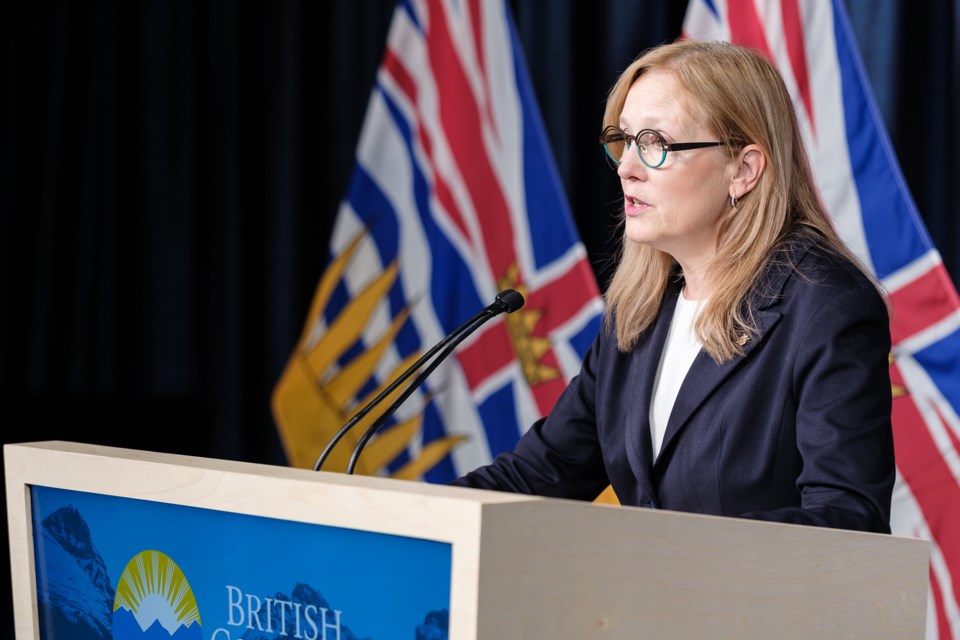Divide and conquer. The BC NDP unveiled a new strategy in public sector bargaining on Thursday, pitting one union against another on the eve of a strike vote in an attempt to sow dissension into the ranks of the organized labour movement.
On the one side, the Hospital Employees’ Union, backed by an opportunistic (and broke) New Democratic government trying desperately to head off labour unrest this fall in the cheapest way possible.
On the other, the BC General Employees’ Union, fighting for wage increases more than twice as large as the David Eby administration is willing to offer.
So far, the BCGEU has had the upper hand in the public relations campaign, moving swiftly this summer to declare talks at an impasse and organize a strike vote.
The results of that vote were set to be revealed Friday, on the eve of the Labour Day long weekend, as a symbolic precursor to actual job action.
The NDP scrambled to chop-block that strike announcement Thursday with a “framework agreement” with the HEU that Finance Minister Brenda Bailey trumpeted as “a major milestone in bargaining.”
The inference by the NDP was clear: other unions are willing to make a deal within government’s terms, it’s just the BCGEU that’s being unreasonable.
A furious BCGEU lashed out.
“The BCGEU is very disappointed with today’s announcement of a deal framework between the Hospital Employees’ Union and the provincial government,” president Paul Finch said in a statement.
“The agreement is below inflation and undermines the very fight that public service workers across B.C. are taking on together for fair wages and respect at the bargaining table.”
It was a remarkable moment.
Usually, organized labour groups — from teachers, to nurses, government employees, post-secondary faculty and more — stand united to get the best deal from government. This time, the HEU broke off from its tag partners, circled around the ring, and hit the BCGEU in the back of the head with the bargaining equivalent of a steel chair.
What did the HEU get in exchange for the heel turn? That’s not clear, because the 67,500 members in the Facilities Bargaining Association don’t even get to see the “framework.” They have to wait until all the other non-wage-related terms are negotiated with the government, before seeing an actual tentative agreement at some point in the undetermined future.
But the deal does fall under government’s “balanced measures mandate” of a 3.5 per cent wage increase over two years, Bailey confirmed. There’s also “low-wage redress” above that for some workers — but government is so broke, with a more than $10-billion deficit, that it had to get the HEU’s permission to spread the redress out over the next two collective agreements, potentially spanning five to six years.
The HEU, cognizant that its move would be considered a betrayal in some parts of organized labour, tacked on a somewhat-apologetic line to the bottom of a press release Thursday.
“We also stand in solidarity with members of the BC General Employees’ Union and the Professional Employees Association as they conclude their strike vote on Friday to move negotiations forward at their respective bargaining tables,” said HEU secretary-business manager Lynn Bueckert.
Inside the BC NDP, there is much frustration at what is viewed as an unreasonably hard line taken by Finch and the BCGEU.
The BCGEU has asked for an 8.25 per cent wage increase over two years, plus cost-of-living protection in the second year. That’s almost 2.5 times larger than government’s self-imposed mandate.
The union has suggested taxing corporations and high-income earners to help generate the needed revenue. But the Eby administration is counting on growing the economy with new corporate investment to dig it out of deficit, and isn’t keen on undermining that effort with new tax hikes.
The big question now is where other major unions will land in the fight between the HEU/NDP and the BCGEU.
The BC Teachers’ Federation and the BC Nurses’ Union have the most public goodwill on their side, especially with overcrowded classrooms and collapsing hospital ERs. If they cut HEU-style deals for 3.5 per cent, then the BCGEU will be left alone in an untenable position.
But if the nurses and teachers double down to back the BCGEU for a richer deal, then the NDP government will have accomplished nothing with its divide and conquer political games other than infuriating what used to be its allies in organized labour.
Rob Shaw has spent more than 17 years covering B.C. politics, now reporting for CHEK News and writing for The Orca/BIV. He is the co-author of the national bestselling book A Matter of Confidence, host of the weekly podcast Political Capital, and a regular guest on CBC Radio.
🚨New newsletter alert! Stay ahead of the curve in B.C. politics. Get expert political analysis delivered straight to your inbox, plus inside scoops and other stories from across the province. Sign up here for the Capital & Coast newsletter.




